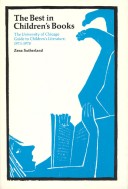This looks at the myth of the Grimms and exposes some issues with them. Ellis looks at the stories and the editions and asks why they change so much from the sources and why the Grimms destroyed the originals (excepting some they had given away); why they depended heavily on friends and family for the tales, and why a woman of a Huguenot, educated background was relied so heavily for the stories which have obvious French inspiration. He argues that not only is their scholarship suspect, but that the ridiculed Ossianic tales are more authentic and less subject to authorial intervention. He also offers the text of three of the tales, The Frog Prince, Sleeping Beauty and Hansel and Gretel in the various variations through various editions, in both German and English (now I don't speak or read German so I can't comment on those editions) and it's amazing how the stories are made more moral (for a 19th century moral baseline); how they're elaborated and how some of the elements you'd be familiar with are actually later additions. The Grimms weren't great scholars with what they did but they could write a memorable story.
It's an interesting look at the intersection of scholarship, nationalism and unthinking trust. There is a certain amount of emotional investment in the concept that these are truly stories but the problem is that digging deeper is problematic as it destroys a mental certainty and a certainty that your country had a legacy of stories that were passed down.
I couldn't help but compare and contrast the Aran Jumper myth.
Reading updates
-
Started reading
-
6 February, 2013:
Finished reading
-
6 February, 2013:
Reviewed
